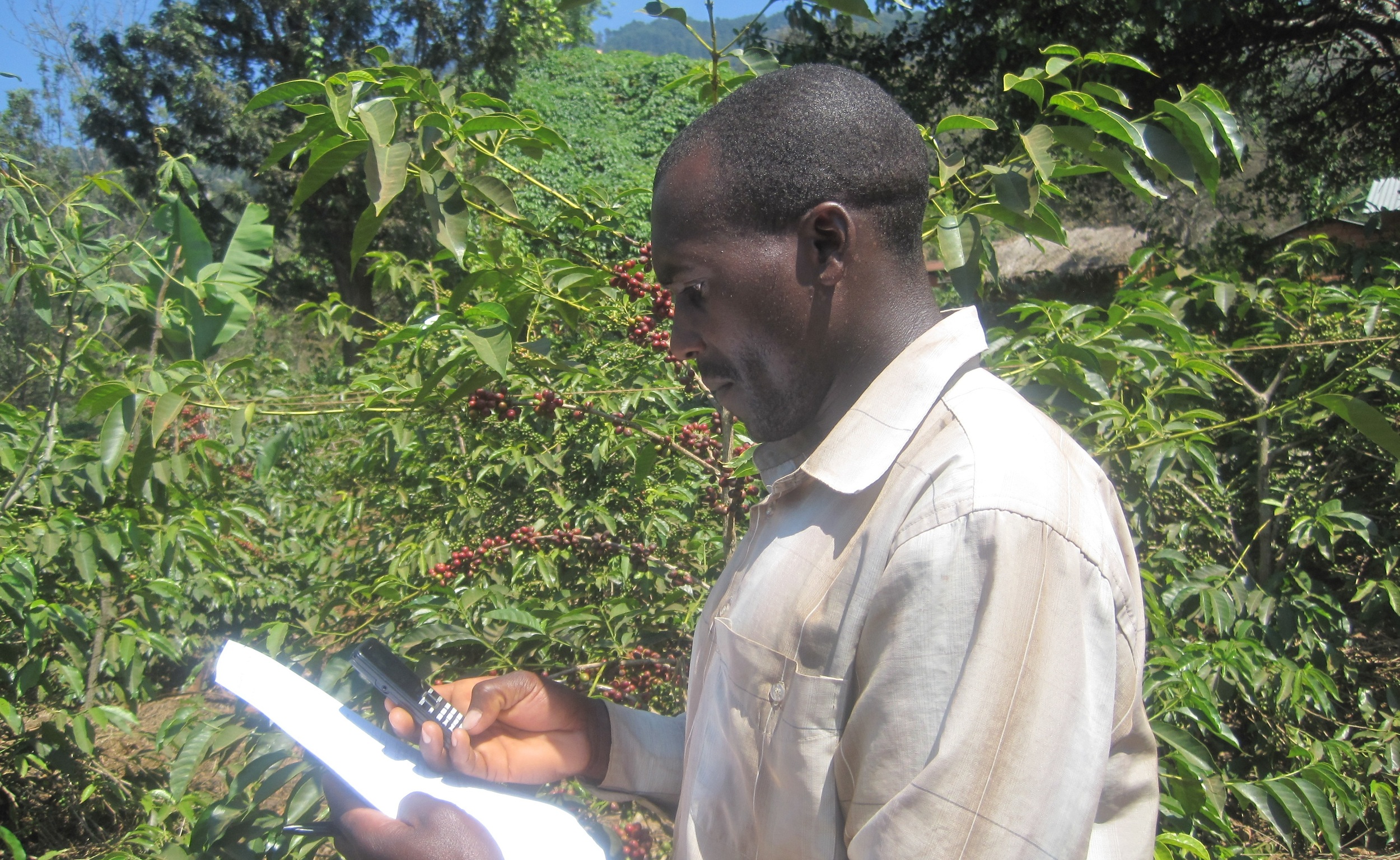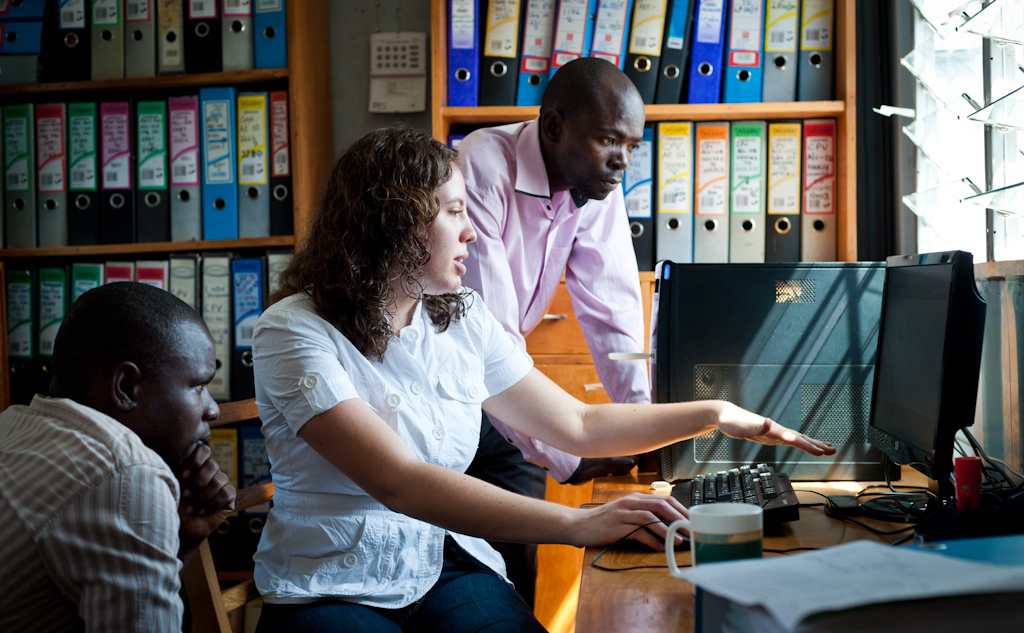 “Nearly 90 percent of Tanzania's residents live in rural areas, work primarily in the agricultural sector, and lack access to information, technology and markets,” Technoserve state on their website. Technoserve is an organisation which focuses its work in Tanzania on supporting farmers, cooperatives and suppliers in order to help develop rural industries. Whilst working towards these country-wide goals, keeping track of their impact is essential. Here, FrontlineSMS Community Support Coordinator, Florence Scialom, speaks with James Hangaya, Monitoring and Evaluation Analyst at Technoserve Tanzania, about how he is using FrontlineSMS to help collect the data he needs for monitoring Technoserve's Coffee Initiative project in Tanzania.
“Nearly 90 percent of Tanzania's residents live in rural areas, work primarily in the agricultural sector, and lack access to information, technology and markets,” Technoserve state on their website. Technoserve is an organisation which focuses its work in Tanzania on supporting farmers, cooperatives and suppliers in order to help develop rural industries. Whilst working towards these country-wide goals, keeping track of their impact is essential. Here, FrontlineSMS Community Support Coordinator, Florence Scialom, speaks with James Hangaya, Monitoring and Evaluation Analyst at Technoserve Tanzania, about how he is using FrontlineSMS to help collect the data he needs for monitoring Technoserve's Coffee Initiative project in Tanzania.
** This post has also been shared by Technoserve, and reported on by AllAfrica. **
Training for farmers is a key to Technoserve’s strategy in Tanzania, and forms a large part of their Coffee Initiative project. Training sessions help small-scale coffee farmers produce better quality coffee, thus helping them to secure higher prices in the international marketplace. “Sessions are based on different topics, and include practical lessons on, for example, how much fertilizer should be used to produce the best yield,” explains James. The farmer trainers hold multiple sessions on agricultural best practices, helping farmers to use their equipment and run their farming practice more efficiently.
One of the key steps in monitoring and evaluating the success of training is to measure the changes in farmers’ behaviour. “We train approximately 12,000 farmers every year” James tells me, “and there are nearly 60 farmer trainers across the country at the moment, running courses for groups of 15 to 20 farmers at a time.” There is certainly a lot of data to keep track of, and this is where FrontlineSMS proves very helpful Technoserve's work.

After experiencing the challenges of monitoring and evaluating their training programmes using extensive paper surveys, James and the Technoserve Tanzania team decided that there must be a more efficient way. This is when they came across FrontlineSMS data collection tool, FrontlineForms. Using this tool Technoserve farmer trainers are now able to conduct all post-training evaluation via SMS.
James explains how they manage this process: “Each farmer that attends a training session is allocated an individual ID. When filling out FrontlineForms, the farmer trainers use this ID to identify which individual farmer they are collecting data on. They answer set survey questions about farmer behaviour, using a pre-defined scale of 1-10 to indicate responses. They then send them back to me in the office to analyse the data.” This gives Technoserve Tanzania the data they need, to indicate whether the training has had an impact on the way the farmers manage their crops.
In addition, farmer trainers are provided with scales to measure a sample number of farmer’s harvest weights. These weights are compared with the farmer’s previous yield, and show how much farmers are able to produce before and after Technoserve training courses. Collecting these kind of direct indicators of impact is key to monitoring the success of the Coffee Initiative training sessions, and FrontlineForms is allowing this data collection process to be done much more quickly, and at a lower cost to Technoserve Tanzania.
The transition from paper to SMS has made a great difference to work flows, as James explains; “it saves us so much time and money, because our field staff no longer have to travel from the field to deliver paper survey results to our office, which can be a journey of more than 1,000 kilometres.”
This use of SMS technology makes the data collection process more efficient in error detection, too. As James says, “If I had picked up a potential error or if there was any data missing in a paper report then I would have to send it all the way back to the field to check whether the data needed to be edited; now I am able to this much more quickly and simply, via SMS.” These efficiency savings help to demonstrate the value of using FrontlineForms as a data collection tool.
Technoserve Tanzania plan to continue using FrontlineSMS for monitoring and evaluation, and are looking at ways to optimise and extend the ways they use the software, too. “In future we are looking to use FrontlineSMS to register farmers for training sessions and track their attendance. This will allow us to provide real-time reporting from the field,” explains James.
As Technoserve get accustomed to using SMS in their day to day work flows it is clear they are finding out more and more ways for it to help them make their work quicker, easier, and more efficient. James summed up this fact well by saying, “my boss agreed that we should change to FrontlineSMS for all the things that it can do for our work!”
You can find out more about what FrontlineSMS can be used for here, download the software for free here, and access FrontlineForms here.
“TechnoServe makes a commitment to businesses and industries, working in the field with entrepreneurs and other industry stakeholders to build enterprises able to thrive on their own and generate continuing benefits for the rural poor.” You can read more about their work on their website: www.technoserve.org









